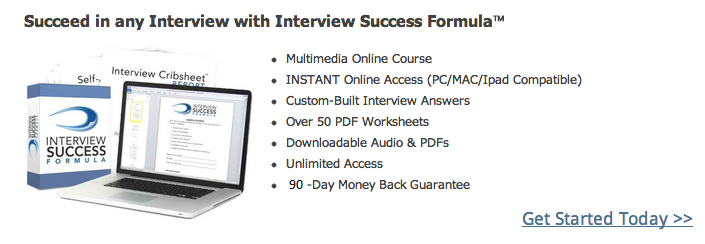 You've studied the relevant interview questions and developed thoughtful answers. You're practiced and prepped. But when you walk in the door and sit down for your interview, you're asked a question that you are not ready for. Here are techniques for how to answer job interview questions that stump you
You've studied the relevant interview questions and developed thoughtful answers. You're practiced and prepped. But when you walk in the door and sit down for your interview, you're asked a question that you are not ready for. Here are techniques for how to answer job interview questions that stump you
Remain calm. You can work this out. You just need time to think. The question is: While that interviewer is staring at you from across the table, how do you find the critical time you need to formulate an effective answer?
Below, I've provided you with 7 techniques you can use in this situation. These techniques can be used singly or in combination to give yourself more time. I recommend starting with the first technique and moving on to the next one on the list, should you find yourself needing more time than the current technique allows.
1. Pause and breathe. You might just need a few moments to think about the question the interviewer gave you. Though potentially intimidating, a little bit of silence won't hurt you.
2. Repeat the question back to the interviewer, or ask the interviewer to repeat the question. Just saying the words aloud or hearing the question a second time can help you process the question. Plus, the repetition likely won't use all your brain power, so you've given yourself some additional time to think.
3. Say, "That's a good question. Let me just take a few moment to collect my thoughts." Then pause, take a deep breath, and work it through. The interviewer will appreciate your thoughtfulness, rather than hearing you wander through a response filled with verbal junk (e.g., "ums" or "likes"). This pause can be lengthy, but if you realize that you are generally confused about the question, move on to the next technique.
4. Ask for clarification. Repeat the question back in a different structure by breaking it into a couple of shorter statements, replacing jargon with simpler words, or just changing the order to something that makes more sense to you. "So, put another way, what you're asking is..." or "I'm not exactly sure what you meant by your question. Would you mind rephrasing it or giving me a bit more clarification?"
5. Try to talk it out. Start with what you think you know should be part of the response. Then slowly work toward the core answer. When you feel like you've wrapped it up, you can ask the interviewer whether you have addressed the question in its entirety or if there are some specific points which he or she would like you to elaborate on further.
6 . Ask to come back to it later. This may fluster your interviewer a bit, but if you're stuck, you're stuck. "Would it be all right if we came back to this question later on? I'm at a bit of a loss at the moment."
7. Take it home for homework, if all else fails. Demonstrate that even when you hit a roadblock, you don't give up. "This question has really stumped me. May I have your card and follow up with you later today via an e-mail?" Then be sure to keep your word and follow up with a well-thought-out response.


